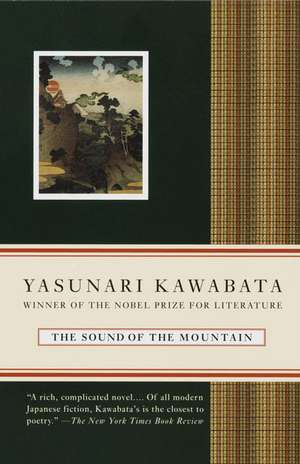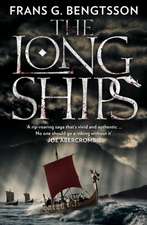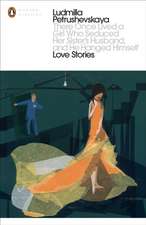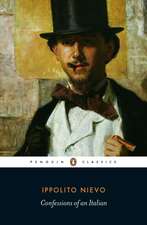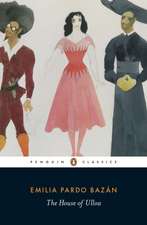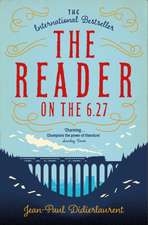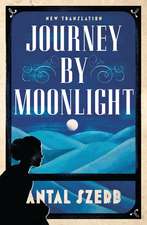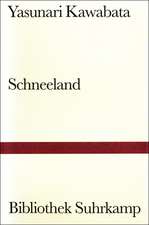The Sound of the Mountain
Autor Yasunari Kawabata Traducere de Edward G. Seidenstickeren Limba Engleză Paperback – 30 apr 1996
By day Ogata Shingo, an elderly Tokyo businessman, is troubled by small failures of memory. At night he associates the distant rumble he hears from the nearby mountain with the sounds of death. In between are the complex relationships that were once the foundations of Shingo’s life: his trying wife; his philandering son; and his beautiful daughter-in-law, who inspires in him both pity and the stirrings of desire. Out of this translucent web of attachments, Kawabata has crafted a novel that is a powerful, serenely observed meditation on the relentless march of time.
| Toate formatele și edițiile | Preț | Express |
|---|---|---|
| Paperback (2) | 52.26 lei 26-32 zile | +17.58 lei 10-14 zile |
| Penguin Books – 5 ian 2011 | 52.26 lei 26-32 zile | +17.58 lei 10-14 zile |
| Vintage Publishing – 30 apr 1996 | 72.84 lei 3-4 săpt. |
Preț: 72.84 lei
Preț vechi: 87.90 lei
-17% Nou
Puncte Express: 109
Preț estimativ în valută:
13.94€ • 14.46$ • 11.65£
13.94€ • 14.46$ • 11.65£
Carte disponibilă
Livrare economică 22 februarie-01 martie
Preluare comenzi: 021 569.72.76
Specificații
ISBN-13: 9780679762645
ISBN-10: 0679762647
Pagini: 288
Dimensiuni: 134 x 205 x 17 mm
Greutate: 0.22 kg
Editura: Vintage Publishing
ISBN-10: 0679762647
Pagini: 288
Dimensiuni: 134 x 205 x 17 mm
Greutate: 0.22 kg
Editura: Vintage Publishing
Notă biografică
Yasunari Kawabata was born in Osaka in 1899. In 1968 he became the first Japanese writer to receive the Nobel Prize for Literature. One of Japan’s most distinguished novelists, he published his first stories while he was still in high school, graduating from Tokyo Imperial University in 1924. His short story “The Izu Dancer,” first published in 1925, appeared in The Atlantic Monthly in 1955. Kawabata authored numerous novels, including Snow Country (1956), which cemented his reputation as one of the preeminent voices of his time, as well as Thousand Cranes (1959), The Sound of the Mountain (1970), The Master of Go (1972), and Beauty and Sadness (1975). He served as the chairman of the P.E.N. Club of Japan for several years and in 1959 he was awarded the Goethe-medal in Frankfurt. Kawabata died in 1972.
Recenzii
“Kawabata is a poet of the gentlest shades, of the evanescent, the imperceptible.”
—Commonweal
“A rich, complicated novel. . . . Of all modern Japanese fiction, Kawabata’s is the closest to poetry.”
—The New York Times Book Review
—Commonweal
“A rich, complicated novel. . . . Of all modern Japanese fiction, Kawabata’s is the closest to poetry.”
—The New York Times Book Review
Textul de pe ultima copertă
By day Ogata Shingo is troubled by small failures of memory. At night he hears a distant rumble from the nearby mountain, a sound he associates with death. In between are the relationships that were once the foundation of Shingo's life: with his disappointing wife, his philandering son, and his daughter-in-law Kikuko, who instills in him both pity and uneasy stirrings of sexual desire. Out of this translucent web of attachments - and the tiny shifts of loyalty and affection that threaten to sever it irreparably - Kawabata creates a novel that is at once serenely observed and enormously affecting.
Descriere
Descriere de la o altă ediție sau format:
Ogata Shingo is growing old, and his memory is failing him. At night he hears only the sound of death in the distant rumble from the mountain. The relationships which have previously defined his life - with his son, his wife, and his attractive daughter-in-law - are dissolving, and Shingo is caught between love and destruction.
Ogata Shingo is growing old, and his memory is failing him. At night he hears only the sound of death in the distant rumble from the mountain. The relationships which have previously defined his life - with his son, his wife, and his attractive daughter-in-law - are dissolving, and Shingo is caught between love and destruction.
